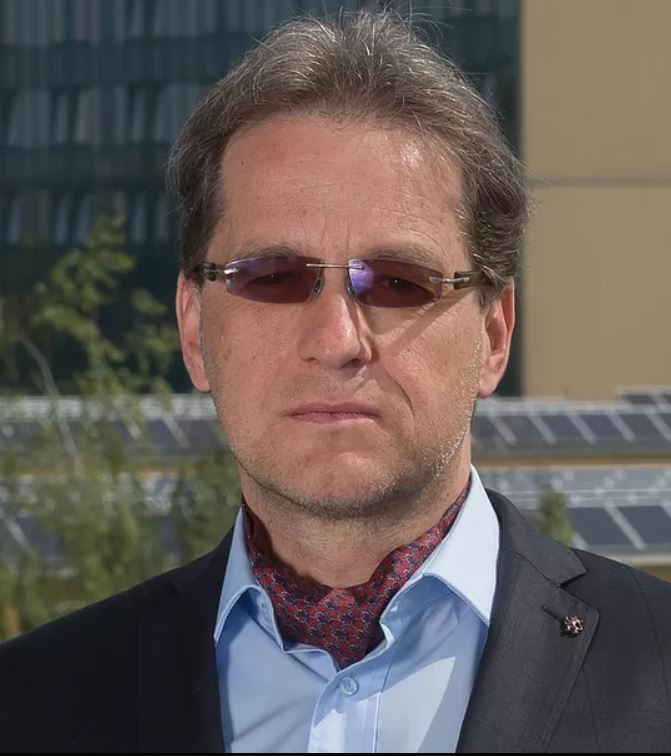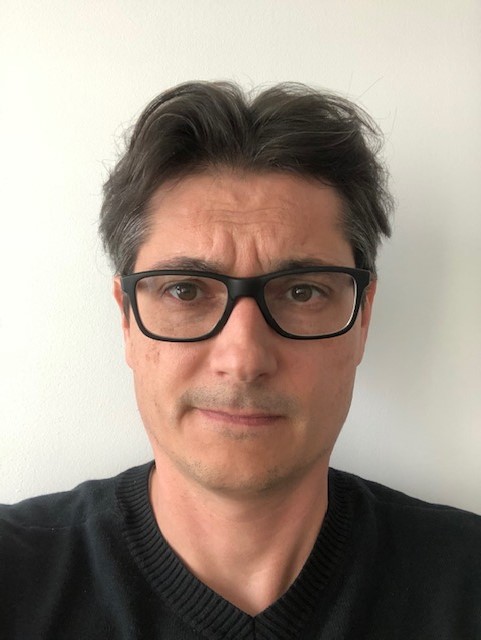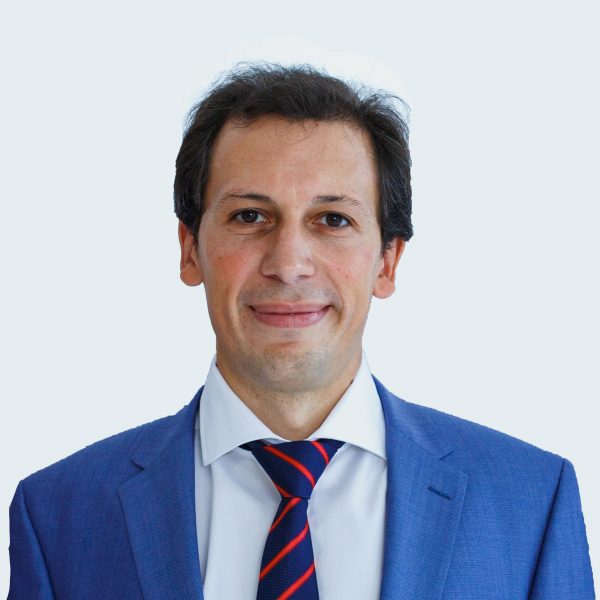|
|
|
Prof. Ivan Zelinka
Department of Computer Science
Faculty of Electrical Engineering and Computer Science VŠB-TUO
17. listopadu 15, 708 33 Ostrava-Poruba, Czech Republic
|

|
|
|
|
Title: Evolutionary Algorithms and its Use
In Modelling and Simulations of the Complex Systems
Date:
SEP 14, 11:15 (CET)
Abstract:
This talk is focused on recent progress in modelling and simulation with control of the complex systems employing unconventional algorithms and approaches. Based on our research and research of various scientists worldwide it has been shown and experimentally demonstrated on many modern algorithms can be used in wide spectra of practical applications as well as the solution of hard theoretical research problems of modelling and simulation.
The lecture will be focused on selected unconventional algorithms (evolutions, swarm intelligence,…), its basic principles, and its classification. After the introduction of basic principles, some physical limits of computing and algorithms will be discussed. In the second part will be described selected applications like plasma reactor control, chaos synthesis and modelling, simulation of the chaos control and identification, the simulation and control of the swarm robots, structure synthesis, for example, electronic circuits, classifiers od astrophysical data, as well as the Darwinian evolution of computer viruses and swarm malware, amongst the others.
Intended audience (include level of expertise)
The lecture is designed as a problem overview - introduction; no advanced or expert knowledge is expected. Its structure, results, and content are based on our previous research, journal publications, keynotes, and tutorials and reflect the latest progress in that research field.
Short Bio:
Ivan Zelinka, (born in 1965, ivanzelinka.eu) is currently associated with the Technical University of Ostrava (VSB-TU), Faculty of Electrical Engineering and Computer Science. He graduated consequently at the Technical University in Brno (1995 - MSc.), UTB in Zlin (2001 - Ph.D.) and again at Technical University in Brno (2004 - Assoc. Prof.) and VSB-TU (2010 - Professor).
Prof. Zelinka is responsible supervisor of several grant types of research of Czech grant agency GAČR as Unconventional Control of Complex Systems, Security of Mobile Devices and Communication ( a bilateral project between Czech and Vietnam) and co-supervisor of grant FRVŠ - Laboratory of parallel computing amongst the others. He was also working on numerous grants and two EU projects as a member of the team (FP5 - RESTORM) and supervisor (FP7 - PROMOEVO) of the Czech team. He is also head of research team NAVY http://navy.cs.vsb.cz/.
Prof. Zelinka was awarded by Siemens Award for his Ph.D. thesis, as well as by journal Software news for his book about artificial intelligence. He is a member of the British Computer Society, Machine Intelligence Research Labs (MIR Labs - http://www.mirlabs.org/czech.php), IEEE ( a committee of Czech section of Computational Intelligence), a few international program committees of various conferences, and three international journals. He is also the founder and editor-in-chief of a new book series entitled Emergence, Complexity, and Computation (Springer series 10624, see also www.ecc-book.eu).
|
|
|
|
Prof. Gregory Zacharewicz
IMT – Mines Ales (National Institute of Mines and Telecommunications)
Alès, France
|

|
|
|
|
Title: Modeling & Simulation Based Framework for Interoperability Driven Enterprise Design
Date:
SEP 15, 10:30 (CET)
Abstract:
Enterprise businesses are more than ever challenged by competitors that frequently refine and tailor their offers to clients. However, in this context, enterprise information systems (EIS) EISs reaches a limit in collaborative environments because enterprises management methods diverge and EISs are mainly inflexible resource packages that are not built with an interoperability objective. Consequently, we need to make EISs interoperable in order to achieve the needed gains competitiveness and performance.
This keynote can be summarized as follows: (1) it will try to relate existing work and it examines barriers that, at the moment, are preventing further improvements due to current methodological and technological limits, and (2) it will propose a conceptual framework and five challenges that model based approaches must overcome to achieve interoperability between EIS in the near and long term. (3) It will draw out how the use of simulation, distributed simulation and co-simulation can support the model based approaches in the journey from concepts to technical deployment. In detail, it will focus on how Business Process Model and Notation (BPMN) standard could be an interesting solution for defining HLA execution scenario within a Model Driven Architecture approach. Specifically, how to support the modeling phase of the HLA execution process in order to explicitly design the desired steps of orchestration between distributed HLA federates through the interpretation of a business process diagram.
Short Bio:
Gregory Zacharewicz, is Full Professor at IMT – Mines Ales (National Institute of Mines and Telecommunications) in Alès, France. He recently joined in 2018 the LGI2P lab to develop simulation driven research works. This lab works on the relationship between humans and the complex systems while keeping their roots in the field of Information Science and Technology. He was previously Associate Professor at the University of Bordeaux (2007-2018) where he focused his research for more than 10 years on Enterprise and Social Organization Modelling, Interoperability and Simulation.
More generally, his research interests include Discrete Event Modelling (e.g. DEVS, G-DEVS), Distributed Simulation, Distributed Synchronization Algorithms, HLA, FEDEP, MDA, Short lived Ontologies, ERP, BPMN, and Workflow.
He recently co-wrote with a worldwide team of authors the prospective chapter “Model-based approaches for interoperability of next generation enterprise information systems: state of the art and future challenges”.
In the domain of Healthcare methodologies and technologies, he co-wrote in 2018 with Bernard P. Zeigler, Mamadou K. Traore and Raphaël Duboz the book “Value-based Learning Healthcare Systems: Integrative modeling and simulation”.
He has been the program chair of Springsim 2016 in Pasadena, vice-general chair of SpringSim 2017 in Virginia Beach and the general chair of SpringSim 2018 in Baltimore. He is member of editorial board of Sage Simulation Journal, JSimE and SNE journals
|
|
|
|
Prof. Nikolay V. Kuznetsov
Saint-Petersburg State University, Russia & University of Jyväskylä
Finland
|

|
|
|
|
Title: Stability and hidden attractors in the simulation and theoretical
study of dynamical models
Date:
SEP 16, 10:30 (CET)
Abstract:
Understanding and predicting the behavior of complex dynamical models is an
actual problem in various engineering applications where simulations of such
models are applied. One of the important tasks in the investigation of
dynamical models is the revealing all possible limiting regimes, i.e. the
problem of localization and analysis of existing attractors. While trivial
attractors (stationary states) can be easily found analytically or
numerically, the search of periodic and chaotic attractors may turn out to
be a challenging problem. Self-excited attractors can be discovered when
observing the dynamics of model's state with initial data from the vicinity
of the stationary states, while hidden attractors have the basins of
attraction, which are not connected with stationary states and are "hidden
somewhere" in the phase space of the model. Thus, the search of hidden
attractors in the phase space may be a challenging task. For the engineering
dynamical models the importance of identifying hidden attractors is related
with the classical problems of determining the boundaries of stability in
the space of parameters and in the phase space. In practice, the transition
of the state of the system to a hidden attractor, caused by external
disturbances, results in undesirable modes of operation and is often the
cause of accidents and catastrophes. This lecture is devoted to engineering
and theoretical and problems in which hidden attractors (their absence or
presence and disposition) play an important role.
Short Bio:
Nikolay Vladimirovich Kuznetsov, is a Russian scientist, specialist in
nonlinear dynamics and control theory. He graduated from the St. Petersburg
University in 2001. In 2004 he received Candidate of Science degree and in
2008 defended his Ph.D. degree at the University of Jyväskylä, Finland. Now
he is Professor and Head of the Department of Applied Cybernetics in St.
Petersburg University and the research group chaired by Prof. Kuznetsov was
awarded the status of the Leading Scientific School (Center of Excellence)
of Russia in the field of mathematics and mechanics in 2018 and 2020. He is
also visiting professor at the University of Jyväskylä and co-chair of the
Finnish-Russian Educational & Research program organized by the University
of Jyväskylä. Prof. Kuznetsov's research interests are in dynamical systems
and applied mathematics. In his works, a combination of rigorous analytical
and reliable numerical methods allowed for both the advancement in solving
previously known fundamental unsolved problems as well as the development of
modern engineering technologies. Among his main results are the development
of the theory of hidden oscillations and the concept of self-excited and
hidden attractors, the discovery of a hidden Chua attractor in Chua
circuits, revealing of coexisting hidden attractors in electomechanical
models with Sommerfeld effect or a solution of the Gardner problem on the
lock-in range for phase-locked loops. More details are available at
https://en.wikipedia.org/wiki/Nikolay_V._Kuznetsov.
|
|
|
|